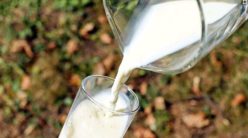Mankind has been afflicted by kidney stones since centuries back. Kidney Stone also referred as Renal Calculi is named as Nephrolithiasis or Urolithiasis as per the medical terminology. According to the recent studies, 12% of the world is affected by Renal calculi at some point of their life. In Indian population, the prevalence rate is 12% out of them 50% may end up with loss of their kidney functions.However, the occurrence rate is more in males compared to females.

Urination helps to remove the toxins along with the liquid waste from the body. During this process, there are chances of formation of solid mass which happens due to the clumping of tiny crystals. These tiny crystals can be referred as Renal Calculus. It may be variable in size and shape. Many factors contribute to the formation of urinary stones. The chemical composition of kidney stone vary from individual to individual depending upon the abnormality. Depending upon the variations in their compositions they are mainly categorized into –
- Calcium stones – Calcium oxalate or Calcium phosphate
- Magnesium Ammonium phosphate stones
- Uric Acid stones
- Cystine stones
- Drug Induced stones.
Person suffering with kidney stone experience with excruciating pain which is beyond explanation. Apart from pain, people also experience frequent urge to micturate, hematuria (blood in urine), nausea and vomiting. Most of the calculi, flushes out along with the urine but if they don’t life becomes miserable.
Causes
Formation of kidney stones is a complex and multifactorial process. These may include several inherent factors like age, sex, heredity,and external factors such as geography, climate, dietary, mineral composition, and water intake.
- Lifestyle habits and dietary changes such as – excessive intake of animal proteins and salt and diet deficientin citrate, fiber contents.
- Low urine output – inadequatewater intake which leads to dehydration and super saturation of the urine.
- Due to recurrent urinary tract infections.
- Genetic predisposition – familyhistory of urinary calculi.
- Anatomical abnormalities –factorssuch as defects in medullary sponge kidney, pyeloureteral duplication, polycystic renal disease, and horseshoe kidney
- Inflammatory bowel disease and other intestinal malabsorption can also be a triggering factor to kidney stones.
- Due to long term use of Lithogenicdrugs: sulfonamides (sulfadiazine), uricosuric agents, which have low solubility andpromotes the formation of calculi, and ceftriaxone (high dose on long terms)
- Climate change – Due to the geographic conditions like global warming and seasonal variations can also be a contributing factor to calculi.
- Some of the risk factors also include Obesity, Diabetes and Hypertension as well. Metabolic disorders – suchas hypercalciuria (excess calcium in the urine), hypocitraturia (citrate excretion of less than 320 mg per day) and history of gout (defective metabolism of uric acid) can also contribute for the same.
Symptoms
- Sudden onset of excruciating, cramping pain in the low back or side, groin and abdomen.Changes in body position do not relieve this pain.
- Nausea and vomiting are the common symptoms often accompanied with pain.
- May or May not cause bloody urine.
- If associated with Urinary tract infections, then fever and chills also occur.
- Sometimes symptoms such as frequent urination, urinary urgency or incomplete urination can also happen.
Home remedies for kidney stones:
- Drink plenty of warm water.
- Consume fruits and vegetables rich in fibrous content. Some foods like lemon, orange, avocados, bananas, green leafy vegetables and pumpkin skins are very beneficial.
- Tender Coconut water -Drinking a lot of coconut water will help to increase the body’s urine output. Apart from this, the amount of potassium present in coconut water helps to alkalinize the acidic urine and also dissolve the kidney stones.
- Pomegranate juice – Pomegranate juice contains elements that lower the acidity of urine, making it harder for stones to form.
- Sugar cane juice – Intake of sugar cane juice promotes frequent urination, which helps the small sized stones to pass through the urine.
- Celery juice or seeds – Including celery seeds to the daily diet reduces the risk of urine formation.
- Horse gram soup is said to be very effective in treating kidney stones.
To avoid recurrence –
- Avoid foods items with high salt content
- Go slow on protein rich food such as meats, fish, eggs and poultry which are likely to increase the amount of acid in urine.
- Avoid unhealthy foods like sugar, sugary drinks like sodas, energy drinks, processed food, alcohol and foods with high levels of oxalates.
- Moderate exercise to the body is advised.





